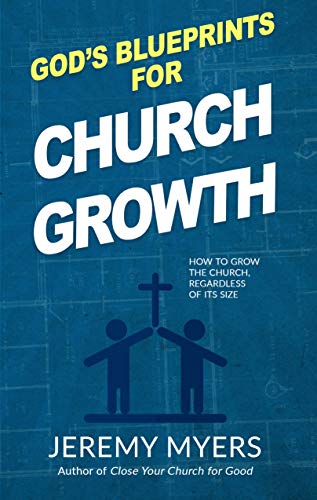 In The Screwtape Letters, (Amazon ad link) a little book written by C. S. Lewis, a demon by the name of Screwtape writes letters to his nephew, Wormwood, on how to be more successful at tempting human beings.
In The Screwtape Letters, (Amazon ad link) a little book written by C. S. Lewis, a demon by the name of Screwtape writes letters to his nephew, Wormwood, on how to be more successful at tempting human beings.
In one letter, Screwtape advises Wormwood that if he wants to keep his assigned human on the road to hell, the best method is not through tempting him to do the big sins like murder and adultery, but with small little sins or even actions which are not sin themselves, but which are of eternal insignificance. Things that are not sin, in and of themselves, but which simply don’t matter for eternity.
He writes, “It does not matter how small the sins are, provided that their cumulative effect is to edge the man away from the Light. … Murder is no better than cards if cards can do the trick. Indeed the safest road to Hell is the gradual one—the gentle slope, soft underfoot, without sudden turnings, without milestones, without signposts.”[1]
Now I’m not saying that cards are sinful or that hell is a place of eternal torture. I’m just pointing out that C. S. Lewis was right about how the big problem with Christianity is not that we fail to focus on the big sins and issues of our day, but that we fail to focus on the small sins. The little, seemingly insignificant issues in our life that we sort of hold on to and coddle and keep around because “they’re no big deal.”
In our series through the book of Ephesians, we’re in a section which deals with the five deadly sins in the health of any person, and all five of these deadly sins are somewhat small and insignificant. At least, that’s how it seems to us.
None of them are what any of us would call “big” sins. They all seem to be small, unimportant, the “relatively insignificant” type of sins.
But that is exactly where we are deceived—as Screwtape has pointed out. Last week we looked at lying, and we saw that Satan, who is the Father of lies, has deceived us into thinking that little lies don’t matter. A little bending of the truth. A little twisting of the facts. But these little, insignificant “half-truths” lead us deeper into greater and bigger lies, and ultimately, away the God, the Father and source of all truth.
So, yes, even little lies are serious and deadly sins. As we continue to look at the other sins mentioned in Ephesians 4, we will see that all of them appear to be small, insignificant sins, but all of them are deadly, and all for a specific reason.
In this study, we consider anger. But as we will see, anger isn’t a sin. It can lead to sin, but anger itself is not a site.
Ephesians 4:26-27 says this: “Be angry, and do not sin”: do not let the sun go down on your wrath, nor give place to the devil.
Now, in the past when I have taught this text, I thought that anger itself was the sin that Paul was dealing with.
But I don’t read this text that way any longer.
While it is true that Paul wants us to be careful with anger, Paul is not saying that anger itself is a sin. He literally says it’s okay to be angry.

Be Angry
Notice he says right there in Ephesians 4:26, be angry. If anger was sinful, then when Paul writes “Be angry” Paul would be telling us to commit the sin of anger. This can’t be right!
The only solution is to recognize that anger is not a sin.
In the past when I taught this text, I have tried to make the distinction between righteous anger and sinful anger, but this just muddies the point that Paul is making. Also, if we try to make a distinction between righteous anger and sinful anger, this gives people an excuse to ignore what Paul is going to explain in the rest of this text.
Anger is like a knife. Knives are good, helpful tools. They help us do our work and prepare our food. But knives can be quite harmful. If we are not careful, we can cut a finger, or even cut off a hand. If we foolish, we can stab the knife into our leg. If we are really unsafe, a knife can even take our life.
Anger is the same way. Anger is good. Anger is healthy. Anger is not a sin. But anger is a tool like a knife. And if we are not careful with anger, it can lead to pain and suffering, just like a knife can.
In Ephesians 4:26-27, Paul is saying that it’s okay to be angry, but we need to be careful with it before it causes problems in our life.
So it is not helpful to try to distinguish between righteous anger and sinful anger. Anger is anger, and, if I may be so bold, all anger begins as righteous anger.
Anger itself is never sinful. Anger is an emotion, and emotions are not sinful. Emotions just are. Emotions are part of what it means to be alive. God has emotions. We have emotions. Even animals have emotions. Having emotions is like having an arm, or a foot. Your arm and your foot are not sinful. They just are. They are part of you.
The same is true with emotions, including emotions like anger. Emotions just are. They are part of you. Now, what matters, as we will see, is what you do with your emotions. Again, just as your arm and your foot are not sinful in themselves, they can be used to perform sinful activities. The same is true with emotions, including anger.
So when Paul writes “Be angry,” he is recognizing that we all get angry at times.
And we do, right? When someone ignores us, insults us, or treats us poorly, we get angry. When we see injustice in the world, we get angry. When someone physically assaults us, we get angry.
Anger is a normal, healthy human emotion. It is often described as a secondary emotion, meaning it’s a response to other emotions like fear, sadness, humiliation, frustration, or perceived wrongs. As such, it can be quite beneficial, in that it helps us determine when actions are wrong, and it can motivate us to address problems, protect ourselves or others, and assert our boundaries.
In this way, our anger is like God’s anger. Scripture speaks of God’s anger in various ways (Gen 30:2; Num 25:4; Deut 6:15; 9:8, 20; Psa 2:12; Jer 4:8; 12:13; Rom 1:18; 12:19). And Jesus got angry when He cleared out the temple. He was furious at what the religious leaders were doing in God’s temple (Matt 21:12-13; Mark 3:5; John 2:13-16). Then in Matthew 23, Jesus gives on long tirade against the numerous sins of the Pharisees.
So it is okay to be angry. Anger is natural. God gets angry. Jesus got angry. We get angry.
But if we are not careful, this anger will quickly turn in to sin, which is why Paul goes on in the rest of Ephesians 4:26 to tell us that when we are angry, we must make sure we do not allow it to turn into sin.

Do Not Sin
Paul writes, Be angry, and do not sin.
Paul is quoting here from Psalm 4:4. Psalm 3 and 4 were written by David at a time when he had every right to be angry.
His kingdom had been unjustly taken away from him through the treasonous actions of his son Absalom. Absalom had lied and tricked his way into gaining a following and then had led a rebellion against David. When David fled for his life, Absalom set up a tent on the roof of the palace and committed fornication with all of David’s concubines in the sight of all Israel (2 Sam 15–16).
Absalom was a wicked man doing wicked things, and it moved David’s heart to anger. And so he writes, in Psalm 4:4, “Be angry, and do not sin.”
And David did not sin. If you read the account, he acted and behaved kindly and justly and even tried to spare the life of his treasonous and fornicating son. All of his actions were loving. He was angry, yet he acted in love, and so did not sin.
But as events turned out, in the heat of battle, Absalom’s hair got caught in a tree and he was killed by Joab, one of David’s commanders. But David was even upset at this. He did want his son to die. He only loved and forgave his son.
This is a positive example from David, where he was angry, but kept his anger from turning into sin.
But Scripture is full of negative examples where other people allowed their anger to become sinful.[2] Do you remember how Jacob stole Esau’s birthright through lying and deception? Well, Esau became angry about that. Jacob had sinned and Esau’s initial anger was probably anger (Gen 27). He had been tricked. But his anger led him into sin when he promised to kill Jacob.
Take Jonah the prophet. He was indignant about the terrible sins of the people of Nineveh. They were horrible people. But his anger got the upper hand when Jonah failed to preach the Ninevites the whole message God had given for him to preach. And then Jonah, out of spiteful anger, settled down to watch the fireworks show, which never happened. And then Jonah got mad at God too.
So you see? Anger is one of those things that easily burns out of control, and when that happens, we fall into sin.
And it is this sin of giving vent to our anger that we need to avoid. For sin resulting from anger is devastating to the family of God. Anger is so devastating, in fact, that Jesus equates anger with murder in Matthew 5:21-22.
Some of the teachers in Christ’s day were saying that while it was not okay to murder someone, it was okay to be angry at them. Jesus says here, “No, no. God looks at the attitude of the heart. Anger is the attitude behind murder. Anger, when you follow it, leads to murder. When you are angry at someone, in God’s eyes, it’s like murder.”
And that’s true, isn’t it? We all know our own hearts. When we get selfishly angry at someone, we begin to think negative thoughts about them, and at the very least, we wish we wouldn’t have to see them or speak to them anymore. Sometimes we imagine them moving out of town. Or we get back at them by saying negative things about them to our friends, relatives and neighbors. We gossip.
We secretly hope something bad happens to them. And when something bad does happen to them, they get sick, or they get into a car accident, or they lose their job, we smugly think that it is because “God is judging them.”
You see, out of anger, we are wishing harm on another person. And murder is the ultimate form of wishing harm on them. That is what Jesus is saying here, and we all know it to be true, if we’re honest with ourselves.
When someone wrongs you or wrongs someone you love, you get angry, and if your anger gets away from you, and you begin to hate that other person, you develop thoughts of murder.
One pastor illustrated this by sharing a classified ad which he found in the newspaper. It read, “Wedding dress for sale. Never worn. Will trade for .38 caliber pistol.”[3]
Letting go of our self-control when we are angry often leads to disastrous results. Most people don’t seem to understand this.
One man who had a problem with anger told his pastor that he thought it was best when he got angry, to just blow up and be done with it. That way it got over quickly. The pastor reminded him that a shotgun does the same thing. It blows up and gets it over quickly. But a lot of damage is left behind.
In fact, did you know that psychologists are discovering that it is not a good idea to “get it out and get it over with?” In years past, it used to be the advice of counselors and psychologists to just go with your emotions.

But Gary Emery, in his book Rapid Relief from Emotional Distress says, “A great deal of recent research has found the opposite to be the case. Researchers have found that freely venting your anger corrodes relationships and breeds more anger, not less. In one recent study … only one out of three hundred happily married couples reported that they yell at each other.”[4]
I always find it interesting that in general, when these psychologists come up with these break-through discoveries into the human psyche, it is exactly what the Bible has been saying all along. Proverbs 29:11 says: “A fool vents all his feelings, but a wise man holds them back.”
Another study found that when you are in an argument with someone, the tone and anger that normally is generated from an argument can be kept to a minimum if only one of the two people constantly maintains a calm tone of voice. Both people remain calm if only one stays in control. Interesting study, right?
But Proverbs 15:1 says, “A soft answer turns away wrath, but a harsh word stirs up anger.” In other words, speak gently, and do not give way to your anger.
I always find it interesting that when psychologists come out with the books that have all these insights into human behavior and relationships, their breakthroughs are always found in Scripture. Psychology often teaches what Scripture has already been teaching for thousands of years.
So how can we keep our anger from becoming sinful? Paul provides two suggestions.
The first suggestion is in the last part of Ephesians 4:26. Paul says that if you want to keep your anger from becoming sinful anger, then … get rid of it! Quickly!
Get Rid of Your Anger Quickly
In Ephesians 4:26, Paul gives us a bit of advice on how to keep from sinning when you are angry. He says don’t let the sun go down on your wrath.
Now, on the one hand, Paul is not saying that we have to get rid of our anger by sunset every day. Around this time of the year, that would mean that by 9:30 p.m., we have to have worked through all of our arguments, but in the winter, we only have until about 5:30 or 6:00.
Of course, if you took this verse completely literally, and if you really disliked trying to work through your arguments, you could always move up to Northern Greenland where every year, the sun doesn’t set for three months![5]
So what is Paul saying here? He’s giving us a principle to live by. And we shouldn’t take it too literally, but we should take it very seriously.
The general principle is that it’s a good idea to try to get rid of your anger as soon as possible. Don’t nurse your anger. Don’t brood over it. Don’t hold a grudge.
Getting rid of it by the time you go to bed is a good general rule of thumb, but in some situations, even an hour is too long. Jesus says in Matthew 5:25 to agree with your adversary quickly. In other cases, though, a few days might be needed to fully work through the disagreement.
Paul is not saying is that we can allow our anger to vent and rage as long as we take care of it before nightfall. A lot of damage can be done in a few minutes or few hours if we allow our anger to explode.
Paul is not giving you a license to vent your rage, or to blow up. Instead, go to the person with whom you are angry and talk it over. Admit where you were wrong. Try to understand the perspective of the other person. Offer forgiveness. Ask for forgiveness.
When you are angry, don’t sin. How? By getting rid of your anger as quickly as you possibly can. Anger is a hot potato game. When anger lands in your hands, toss it away from you as quickly as you can.
I know this is much easier said than done. Sometimes, you just have to fight things through with another person. Sometimes, the best way to get rid of your anger is to talk thing out. So if you decide to do that, let me give you “Ten Rules of Engagement” or “Ten Guidelines on How to Fight Nicely.”
- No name calling.
- Never say “never” or “always.”
- No garbage collecting, or bringing up the past.
- No sarcasm.
- No blaming statements.
- No interrupting.
- Identify your contribution to the problem.
- Take turns listening and talking.
- Only one person talks at a time.
- Focus on one issue at time, don’t skip around.
Ed Young recommends using the acrostic CLASP.[6]
- Calm down.
- Lower your voice.
- Ask some questions.
- State your position.
- Propose a solution.
So if you want to keep from sinning when you are angry, the first thing to do is not prolong it, but be reconciled to the person with whom you are angry.

Be a Solution to the Problem
Another way is to be the solution to the problem that made you angry.
Often times, when people see some injustice being done, they get angry about it—and rightfully so. This is the type of anger that God has, and which we too can occasionally have. But our anger quickly becomes sin. So when you see some injustice being done, rather than stew in your anger juices, instead decide to do something about the problem you have observed.
There is much to be angry at in this world, but the great problem in our world right now is that people get angry at what they see happening, and then rather than seek to fix the problem, they lash out in anger at others, which then only creates more anger.
Sometimes, anger “merely wastes the energy that ought to go in a different direction…[If you see something that upsets you ]…Well, what are you doing about it? How much of your life have you spent in really combating this? In helping to produce social conditions in which these sort of things will not occur?”[7]
C.S. Lewis said that “Anger is the anesthetic of the mind.”[8] And that’s true. Sometimes, in your anger, your mind is unable to think, and so rather than forming a solution to what made you angry, the only thing you can focus on is the anger.
This should not be. Anger can be good, but only if we get rid of it quickly, and turn our anger into loving action to fix the problem that made us angry. Anger is not an end in itself. If you are angry, you need to either be reconciled to the one with whom you are angry, or you do something about the situation which made you angry. Either way, you are to get rid of the anger quickly.
So, when Paul says in verse 26 to not let the sun go down on your anger, he means two things. First deal with your anger, and second let your anger spur you to action.
If you fail to do this, if you allow anger to go unchecked, then anger can cause you to do something sinful.
One example of letting anger get out of control is seen in the life of Moses. Scripture calls him one of the most righteous and humble men who has ever lived. He led the Israelites out of Egypt, through the Red Sea, and to the foot of Mount Sinai. Then they went up to the Promised Land, and although they could have entered then, they people did not believe that God could provide for them, and so they instead wandered around in the wilderness for 40 years.
Now if I were Moses, who was 80 years old at the time, I would have been so angry at these stubborn, rebellious, distrustful people. After all, I’m 80 years old! I want to rest. I don’t want to march around in the desert for 40 years!
But Moses took it all in stride. And frequently during those 40 years, when the Israelites continued to show a lack of faith, Moses often interceded for the people of Israel.
But then, right near the end of his life, right before they entered the Promised Land, Moses had had enough. In Numbers 20 we find the Israelites complaining and murmuring about the lack of water, and so God told Moses to speak to a rock that was nearby for water to come out of it.
But Moses was angry. And again, there was nothing wrong with his anger. He had every right to be angry. He had done everything for the Israelites, and they had seen God miraculously provide for them over and over again. But they still would not trust God or trust Moses to lead and provide for them. So Moses was angry. No problem. Understandable.
But in this situation, he let his anger get the best of him. He spoke harshly to the Israelites (which they probably deserved) and out of anger, struck the rock with his staff rather than speak to it as God had instructed.
And what was the consequence of letting his anger get the best of him? Moses was not allowed to enter into the Promised Land when they finally arrived.
Anger, when it gets away from you, exacts a terrible price.
And that brings us to verse 27. If we keep anger around and do not get rid of it quickly, then it becomes an opportunity for sin. Look at Ephesians 4:27
Don’t Give Place to the Devil
Paul says in verse 27. nor give place to the devil.
Paul has said that when we are angry, we must not sin. How can we keep from sinning? We have to get rid of it quickly. If we don’t, then we are giving the devil a foothold in our life, so that our anger will turn to sin.
When anger is not dealt with, it festers. It builds up until it breaks loose. Satan loves to take something that might not initially be sinful—such as anger—and twist it into something that is sinful. For example, he takes love and changes it into lust. He takes a healthy work ethic and transforms it into greed. He takes personal happiness and perverts it into hedonism.
When we do not deal with our anger, it gives him a foothold in our life to make anger become sinful.
When people read the phrase give place to the devil, some get the idea that the devil is coming into their life and taking over.
This is not the case at all. There is a whole world of theology and psychology I could delve into here about the devil, but I will refrain. Just know that you cannot be possessed, you cannot be inhabited, you cannot be controlled by some evil being called the devil.
But you can be influenced. You can be tempted. Devilish thoughts and tendencies can become a motivating force in your life. The dark side of your character residing in your unconscious self, can lead you to certain thoughts, attitudes, and actions that are destructive to yourself and others.
And if you are not careful, these thoughts and tendencies can become habits. They can even become addictions that start to control your life.
That is what Paul is talking about. In fact, the phrase Paul uses here could be translated the way. He is saying “Don’t give a foothold to devilish tendencies.”
The terminology of a foothold implies the hand-to-hand combat of war. And the last thing you want to do in hand-to-hand combat is give your enemy good footing or to surrender ground to him.
But that is what refusing to deal with anger does. It gives our dark tendencies a foothold. It gives the devil the upper hand. Something to grab on to and control you with. It gives the enemy a beachhead from which to organize further attacks.
When the devil gets a foothold and anger becomes a sin, it gains control over the Christian, rather than the Christian maintaining control over it.
So really, the idea behind this last phrase in Ephesians 4:27 is: Don’t even begin to take the road toward addiction. Paul says in the context of anger, but it really applies to anything that can take control in our life.
If life is a river, then all the temptations of life are like eddies that try to pull us in and keep us going round and round so that we never make any further progress.
Anger, like most negative human traits, feeds on itself, and if we give it a foothold, we can become addicted to it. All addictions work the same way.
They keep us in an eddy, going round and round the same issue over and over, restricting our progress in the river of spiritual development.
Anger is dangerous, and it can cause us to sin. This is why James 1:20 says that human anger does not accomplish the righteousness of God, and Paul says in Romans 12:19-21 to give place for God’s wrath. In other words, Scripture teaches that anger is too hot for humans to handle, and so we should leave all anger, vengeance, and retaliation up to God.
Letting your anger build causes more damage in the long run. Unchecked anger and wrath can destroy your life. This is why it is so important to get rid of our anger by forgiving and being forgiven, and by seeking to become a solution to the problem that made us angry in the first place.
Mark Twain, in his humorous fashion, changed this a bit. He said, “When angry, count to four. If very angry, swear.” That’s not good advice. Better advice is from Thomas Jefferson, who said, “When angry, count to ten. If very angry, count to one hundred.”
Maybe even better advice is this: When angry, love someone. When really angry, love them even more.
Indeed, rather than be angry at our enemies, we are told to love our enemies (Luke 6:35). Jesus says in Matthew 5:39 that when someone strikes us on one cheek, rather than strike them back out of anger, we should instead turn the other cheek.
Proverbs 25:21-22 tells us that the best way to defeat our enemies when they wrong us, is not to “Do unto them as they have done unto you” but to love them, and be kind to them.
So when it comes to anger, it is best to leave it up to God. Yes, we will get angry, which is why Paul says “Be angry.” And yes, when the Holy Spirit is in us, we recognize that bad and terrible things happen in this world, and when we see these things, we will get angry.
But rather than let anger spur us on toward sin, we should instead let it spur us on toward righteousness and love.
So the next time you are angry, don’t get upset at yourself for being angry. Instead, recognize it, and then work to get rid of it quickly and let it spur you on toward something righteous and loving.
What should we do with anger according to Ephesians 4:26-27? Paul says it is okay to be angry, but we must get rid of it quickly so that it does not lead to sin. But anger itself is not sinful. So be angry! But use it in the right way.
Here are some practical suggestions for how to deal with anger in your life.
First, admit you have a problem with anger, and to ask God for help in dealing with it. Confessing and prayer are always the first and best steps one can take in dealing with sin.
Second, when anger begins to develop, simply walk away. When you are confronted with a person or situation in which you know you will get angry, simply walk away. Literally. Put one foot in front of the other and leave.
If you do this, you may experience personal loss, you may be criticized for avoiding the problem, but at least you will not have sinned in your anger and given the devil a foothold.
And I believe you will find that blessing will result. Arthur Ashe, that great tennis player from years ago found himself facing Ilie Nastase in the 1975 Master’s Tennis tournament. Nastase had the nickname “Nasty” for his rude on-court antics.
The day he was playing Arthur Ashe, he was at his worst. He was stalling the game, cursing, taunting, and acting like a madman on the court. Finally, Arthur put down his racket and walked off the court, saying, “I’ve had enough. I’m at the point where I’m afraid I’ll lose control.”
The umpire warned Arthur that by doing so he would forfeit the match. He responded, “I don’t care. I’d rather lose the match than my self-respect.”
The next day, the tournament committee came to a surprising decision. Rather than condone Nastase’s bullying tactics, they insisted that he default the match for his unsportsmanlike conduct.
Arthur Ashe, rather than respond in sinful anger, simply walked away, and won both the game of tennis and the game of life.[9]
When you find yourself in a situation where you sense sinful anger crouching at the door, simply get up and walk away.
But sometimes, anger gets the upper hand. We are not perfect humans yet, and so sometimes we lose control and lash out in anger before we know what is going on.
When that happens, you need to follow the example of D.L. Moody. Moody was the Billy Graham of the 19th Century, and one evening he was speaking at back-to-back services.
After the first service, he was at the door greeting those who were coming in for the second service, when a man approached him and delivered a highly offensive insult. Moody never reported what the man had said to him, but it must have been contemptible, for in a sudden fit of rage, Moody shoved the man and sent him tumbling down a short flight of steps.
The man was not harmed, but friends of Moody were thinking that the second service was ruined. The large number of people who had witnessed the whole thing could hardly be in a condition to be influenced by anything Moody would say that night. But when Moody called the meeting to order, he stood and with a trembling voice spoke these words:
“Friends, before beginning tonight I want to confess that I yielded just now to my temper, out in the hall, and have done wrong. Just as I was coming in her tonight, I lost my temper with a man, and I want to confess my wrong before you all, and if that man is present here whom I thrust away in anger, I want to ask his forgiveness and God’s Let us pray.”
It is reported that the second meeting that night seemed unusually touched by God and many people believed in Jesus Christ for eternal life.[10]
If you get caught in a fit of rage before you can walk away, and you lash out in anger…the thing to do is to go the person and confess your sin and ask for their forgiveness, then do the same thing with God.
Finally, the best way to get rid of anger is to simply convert it into love. Note that Paul’s description of the Spirit-filled life in Galatians 5:22-23 does not contain any anger. It only includes love, joy, peace, patience, kindness, goodness, faithfulness, gentleness, and self-control. All of these things are the opposite of actions that come from anger.
This final truth is brought out in an excellent article by Bruxy Cavey called “5 Responses to Justifications for Anger.”
In this article, he presented the five ways people attempt to justify their anger, and refutes each one. It provides a fitting conclusion to this study of Ephesians 4:26-27.
Here is an extended quote:
- A) “But Jesus got angry.” Yes he did, and that’s the point. Jesus is the judge, Jesus is God, and we are not. The Bible says consistently that human anger is wrong because anger is the emotion associated with judgement and we are not one another’s judge; God is. Yes sometimes Jesus shows us how to be human, but other times (like when he is worshipped or when he judges) he is showing us what God is like. We don’t encourage people to worship us because Jesus received worship, and we don’t sit in the seat of anger/wrath/judgement because Jesus did. That’s the point. The Bible doesn’t specify Jesus was angry when he judged the temple system (it does call him angry in another situation though), but even if it did, the point is, he is the judge and we are not. Jesus didn’t use his “temple tantrum” as a teachable moment. He never asked the disciples to join him in turning tables. He didn’t say, “Come on boys! Grab a table and flip it over, just like me!” Instead, they stood back and watched God’s judgement fall. And so should we. Stop trying to do God’s job.
- B) “But it’s human to be angry.” Yes anger is very human, as is lust and other things that we should not give into. No sensible Christian would argue, “But lust is very human, so we should make room for it, and steward it wisely.” Nnnope. It is very understandable that we will experience anger rising inside us in certain circumstances, but we shouldn’t encourage it, rather we are called to turn away from it. There are many things that are natural for us that we are called to put away from us in favour of what is super natural. This isn’t a theory, this is Bible 101 (Matthew 5:21-22; Ephesians 4:31; Colossians 3:8; etc). There is no anger listed in the fruit of the Spirit (Galatians 5:22-23). Instead we are called to love, joy, peace, patience, kindness, goodness, faithfulness, gentleness and self-control. Let’s do what the Bible says and get rid of anger rather than trying to find excuses to hold onto it.
- C) “But Ephesians 4 says it’s okay to be angry.” Let’s be accurate here: Ephesians 4:26-27 says anger is not a sin *IF* we get rid of it as soon as possible, otherwise it becomes satanic. (People like to quote the first part of that statement without following on to the rest of it.) And this is the most positive thing the New Testament say about anger: you can avoid turning anger into a sin if you get rid of it right away. That’s the point of the passage. Get rid of anger as quickly as possible or else it plays into the devil’s desire for us to try to become like God in ways we were never meant to be. That’s the original temptation. And this is confirmed just a few verses later (Ephesians 4:31) when Paul goes on to say that Christians need to rid ourselves of all anger.
- D) “But the Bible says ‘righteous indignation’ is a good thing and indignation means anger.” It’s true that in 2 Corinthians 7:11, Christian “indignation” is seen as a positive value, the result of godly sorrow. But what is indignation? That English word is a poor translation for aganakteo, a Greek word meaning “much grieving”. It means to be intensely sad, not mad. Our love for the world should lead to our sorrow over sin, not our rage.
- E) “But if we get rid of our anger, what will motivate us to fight injustice?” How about love? Love is strong enough and robust enough to do the work. Let’s admit it: we prefer anger because it feels self-righteous and we get a taste of sitting in the seat of judgement, but that’s the wrong way to feel alive. Love is enough. Love will lead us to grieve for the world, to be filled with “aganakteo” (much sorrow), and to act on behalf of the oppressed. Love is enough. Let me say it again – love is enough.
You might be tempted to do what many Christians try to do at this point in the conversation – make one last maneuver, one last attempt to hold on to a modicum of anger. You might be tempted to think “Okay, good point, anger can be destructive for humans to hold onto, so this is a good warning for us to use it wisely.” Use it wisely? That isn’t what the Bible says to do with anger. But this thinking is widespread. I found this on a popular Christian web site: “Biblically, anger is God-given energy intended to help us solve problems. We can know for sure that our anger or indignation is righteous when it is directed toward what angers God Himself. Righteous anger and indignation are justly expressed when we are confronted with sin.” It sounds so good. It just isn’t biblical. How did we get from “get rid of all anger” (Ephesians 4:31; Colossians 3:8) and “anger is like murder” (Matthew 5:21-22) to “anger is God’s gift to us, as long as we make sure we stay angry at the right kinds of things”?
There simply is zero justification for our Christian excuses to tolerate anger. Anger may rise up within us, just like lust, but that is our cue to lay it aside. If we do, it is merely temptation and not sin. But if we don’t, we invite the devil to manipulate our thinking further. If you notice that your mind is still trying to search for reasons why anger must be okay, stop and ask what is really going on and why you want to hold onto the right to be angry. Then pray that God fills you with his Spirit, and choose to partner with what we know the Spirit wants to do in you: love, joy, peace, patience, kindness, goodness, faithfulness, gentleness, and self-control.
[1] C.S. Lewis, The Screwtape Letters (New York: Spire, 1976), 67.
[2] See NIV Topical Bible, Anger: Sinful, exemplified. Kohlenberger, Zondervan.
[3] Tale of Tardy Oxcart, p. 33. Cited from Preaching Today, March-April 1993.
[4] In Nelson’s book of illustrations, 29. Citing USA Today, “Don’t Get Angry”, November, 1987.
[5] Idea from Stott, who got it from Armitage Robinson, who got it from an earlier commentator, 186.
[6] Ed Young. Focus on the Family Cassette Tape. Keep the Home Fires Burning, CS823. 1991.
[7] C.S. Lewis, The Letters of C.S. Lewis to Arthur Greeves (January 17, 1931), taken from The Quotable Lewis, p. 47.
[8] Quotable Lewis, p. 47.
[9] Nelson’s book, p. 30.
[10] Nelsons book, p. 31, citing William R. Moody, The Life of Dwight L. Moody (Murfreesboro, TN: Sword of the Lord Pub, n.d.), 110-111.




 After President Calvin Coolidge returned home from attending church early one Sunday afternoon, his wife had been unable to attend, but she was interested in what the pastor spoke on in the service, so she asked her husband what the sermon was about.
After President Calvin Coolidge returned home from attending church early one Sunday afternoon, his wife had been unable to attend, but she was interested in what the pastor spoke on in the service, so she asked her husband what the sermon was about.





 A few years ago, I watched on television an edited version of a movie called “Trading Places.” It starred Dan Ackroyd and Eddie Murphy. Ackroyd was a rich business executive stockbroker, and Murphy was a recently arrested con-artist. Dan Ackroyd worked for two old men who decided to do a little experiment on the age-old question of nature versus nurture, or genetics versus environment. Is a person they way they are because of their genetic make-up, or because of the environment they live in?
A few years ago, I watched on television an edited version of a movie called “Trading Places.” It starred Dan Ackroyd and Eddie Murphy. Ackroyd was a rich business executive stockbroker, and Murphy was a recently arrested con-artist. Dan Ackroyd worked for two old men who decided to do a little experiment on the age-old question of nature versus nurture, or genetics versus environment. Is a person they way they are because of their genetic make-up, or because of the environment they live in?
 I mean, if you could hear Jesus and be taught by Jesus, wouldn’t that be better than hearing me talk about Jesus?
I mean, if you could hear Jesus and be taught by Jesus, wouldn’t that be better than hearing me talk about Jesus?
 Imagine yourself working in a manure pit on a hot summer day. It’s slippery so your fall occasionally into the manure, and it’s hot so everything—including yourself—stinks. When you get home, what’s the first thing you do? Do you go sit on the couch and grab a snack? No! You are filthy! The first thing you do is strip off those filthy clothes.
Imagine yourself working in a manure pit on a hot summer day. It’s slippery so your fall occasionally into the manure, and it’s hot so everything—including yourself—stinks. When you get home, what’s the first thing you do? Do you go sit on the couch and grab a snack? No! You are filthy! The first thing you do is strip off those filthy clothes.




 Also note the verb walk. It is used twice in Ephesians 4:17, and it is a key word for the rest of chapter 4, all of chapter 5, and the first half of chapter 6. Ephesians can be summarized with three verbs: Sit, Walk, Stand. Chapters 1–3 are about being seated with Christ. Chapters 4–5 and half of chapter 6 is about walking with Christ. And then Ephesians 6:10-20 is about standing our ground with Christ.
Also note the verb walk. It is used twice in Ephesians 4:17, and it is a key word for the rest of chapter 4, all of chapter 5, and the first half of chapter 6. Ephesians can be summarized with three verbs: Sit, Walk, Stand. Chapters 1–3 are about being seated with Christ. Chapters 4–5 and half of chapter 6 is about walking with Christ. And then Ephesians 6:10-20 is about standing our ground with Christ.

 First of all, before we look to the wider context, an alert biblical thinker will recognize that Paul is engaging in a classic scapegoating technique. He is portraying a group of outsiders as monsters, so that they can be safely sidelined, ignored, or in some more extreme cases, arrested or even killed. All hatred, war, and violence comes from scapegoating, and one of the primary purposes for the life, death, and resurrection of Jesus was to unveil the scapegoating sin that all humans practice.
First of all, before we look to the wider context, an alert biblical thinker will recognize that Paul is engaging in a classic scapegoating technique. He is portraying a group of outsiders as monsters, so that they can be safely sidelined, ignored, or in some more extreme cases, arrested or even killed. All hatred, war, and violence comes from scapegoating, and one of the primary purposes for the life, death, and resurrection of Jesus was to unveil the scapegoating sin that all humans practice. Essentially, Paul is holding up a mirror to the souls of his readers by getting them to condemn some other group of people, and then he says, “Look! You’re looking into mirror. They are the mirror of you!”
Essentially, Paul is holding up a mirror to the souls of his readers by getting them to condemn some other group of people, and then he says, “Look! You’re looking into mirror. They are the mirror of you!”
 In Kindergarten we are taught that whenever you point the finger at someone else, there are three fingers pointing back at you. That is how to read this text, and Paul deftly does some finger pointing at others to reveal to the Ephesian Christians that they should stop worrying about what others do, and instead take a look at their own life. Who cares what “they” do? Life isn’t about fixing them or controlling them. Life is about you becoming who God made you to be.
In Kindergarten we are taught that whenever you point the finger at someone else, there are three fingers pointing back at you. That is how to read this text, and Paul deftly does some finger pointing at others to reveal to the Ephesian Christians that they should stop worrying about what others do, and instead take a look at their own life. Who cares what “they” do? Life isn’t about fixing them or controlling them. Life is about you becoming who God made you to be.


 Yet the preaching, teaching, and learning of Scripture is often the one thing that many Christians do not want or desire. Many local gatherings of believers tend to focus on everything but the teaching and learning of Scripture. Yet this is simply a sign of spiritual immaturity. While new Christians desire only sweet milk, mature Christians crave the meat of the Word of God. It is the teaching and learning of the truths of Scripture that turns baby believers into mature adults, and helps guide adults into the proper way of life.
Yet the preaching, teaching, and learning of Scripture is often the one thing that many Christians do not want or desire. Many local gatherings of believers tend to focus on everything but the teaching and learning of Scripture. Yet this is simply a sign of spiritual immaturity. While new Christians desire only sweet milk, mature Christians crave the meat of the Word of God. It is the teaching and learning of the truths of Scripture that turns baby believers into mature adults, and helps guide adults into the proper way of life. The difficulty, of course, is that every “truth-telling” Christian thinks they are speaking the truth in love. I have heard Christians say the most hateful things, and when challenged about it, have defended their words by saying, “The loving thing is to tell them the truth, no matter how painful it might be.”
The difficulty, of course, is that every “truth-telling” Christian thinks they are speaking the truth in love. I have heard Christians say the most hateful things, and when challenged about it, have defended their words by saying, “The loving thing is to tell them the truth, no matter how painful it might be.”


 As Paul concludes the section of his letter about church growth, he returns to the centrality of love. We are to speak the truth in love so that we may all work for the edification of the body in love. Church growth only happens within the context of love.
As Paul concludes the section of his letter about church growth, he returns to the centrality of love. We are to speak the truth in love so that we may all work for the edification of the body in love. Church growth only happens within the context of love.